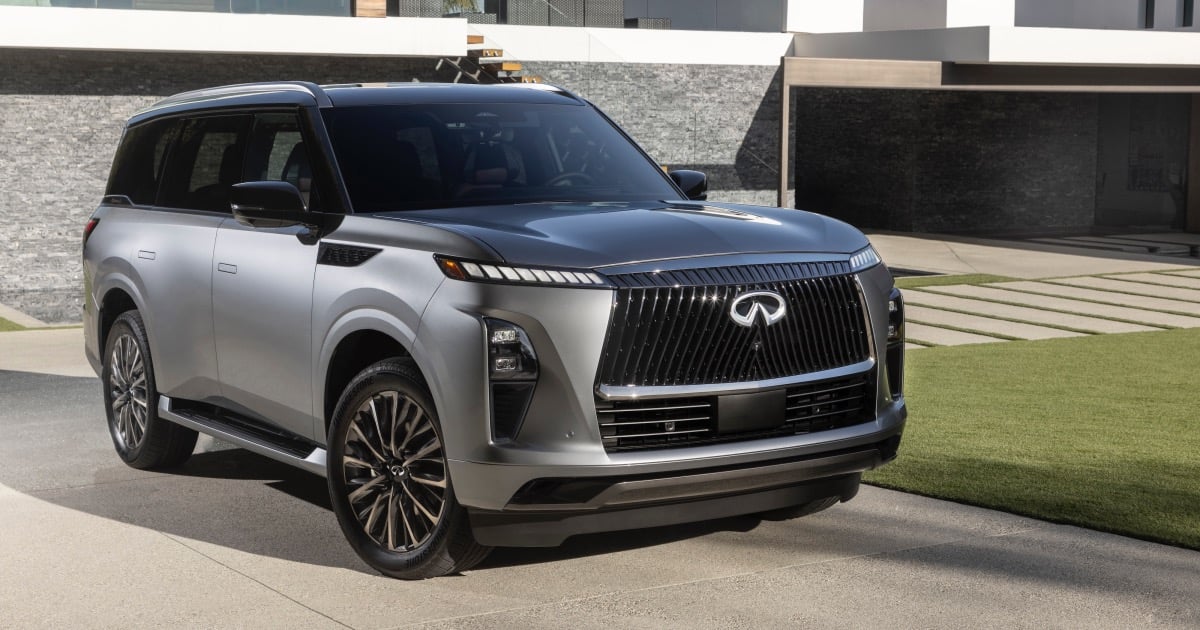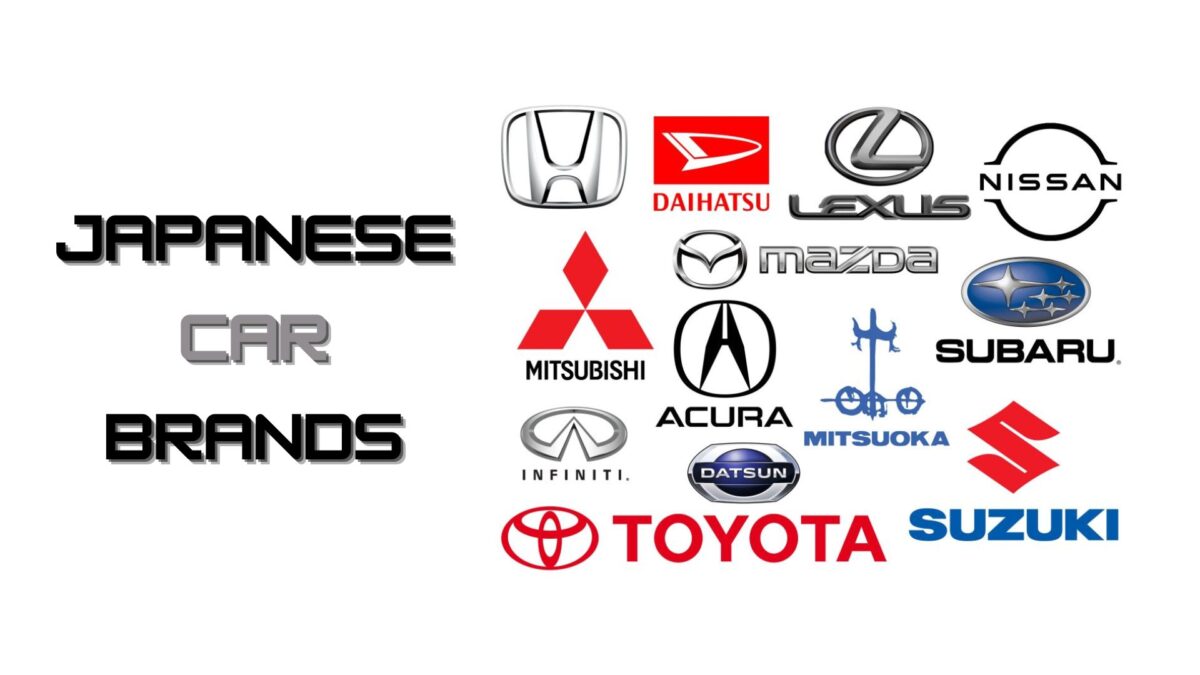The Japanese automobile industry has long been a dominant force in the global market. Known for its innovation, reliability, and advanced technology, Japanese car brands have set high standards in the automotive world. This article delves into the history, popular models, and notable achievements of the best Japanese car brands, offering a comprehensive overview of their impact and contributions.
Top 6 Japanese Car Brands
Toyota

Founded in 1937 by Kiichiro Toyoda, Toyota began as a division of the Toyoda Automatic Loom Works. Over the decades, it grew from a domestic automaker to a global leader, known for its efficient production methods and high-quality vehicles.
Popular Models
- Corolla: The best-selling car in history, known for its reliability and efficiency.
- Camry: A popular mid-size sedan, appreciated for its comfort and durability.
- Prius: The pioneering hybrid car that revolutionized the industry with its eco-friendly technology.
- Land Cruiser: A robust SUV favored for its off-road capabilities and luxurious features.
Innovations and Achievements
Toyota has been at the forefront of hybrid technology with the Prius. Japanese car brands are renowned for their quality, innovation, and high standards in the automotive industry. With a strong market presence in over 170 countries, Toyota remains a symbol of innovation and reliability.
Honda

Founded in 1948 by Soichiro Honda and Takeo Fujisawa, Honda initially focused on motorcycles before expanding into automobiles. Today, it is one of the largest automakers globally, known for its engineering excellence.
Popular Models
- Civic: A compact car that has set benchmarks for fuel efficiency and performance.
- Accord: A mid-size sedan celebrated for its blend of comfort, technology, and reliability.
- CR-V: A compact SUV that offers versatility and advanced safety features.
- Fit: A subcompact car known for its spacious interior and fuel efficiency.
Innovations and Achievements
Honda introduced the VTEC engine technology, enhancing performance and fuel efficiency. Its significant contributions to the motorcycle industry and the development of fuel-efficient engines have solidified its market presence.
Nissan

History and Background
Nissan, founded in 1933, has grown from a small domestic automaker to a major global player. The company is known for its wide range of vehicles and cutting-edge technology.
Popular Models
- Altima: A mid-size sedan offering a balance of performance and comfort.
- Sentra: A compact car known for its affordability and efficiency.
- GT-R: A high-performance sports car celebrated for its speed and advanced technology.
- Leaf: One of the best-selling electric vehicles, known for its zero-emission technology.
Innovations and Achievements
Nissan has been a pioneer in electric vehicle technology with the Leaf. The company is also making strides in autonomous driving, with its ProPILOT Assist technology. Nissan’s global market presence continues to grow, driven by its innovative approaches.
Mazda

History and Background Founded in 1920, Mazda started as a manufacturer of machine tools. It transitioned to vehicle production and gained recognition for its innovative designs and performance-oriented cars.
Popular Models
- Mazda3: A compact car known for its sporty handling and stylish design.
- Mazda6: A mid-size sedan offering a premium driving experience.
- CX-5: A compact SUV that combines versatility with advanced safety features.
- MX-5 Miata: An iconic roadster celebrated for its fun driving dynamics.
Innovations and Achievements Mazda’s SkyActiv technology enhances fuel efficiency and performance. The company is also known for its rotary engine innovation. With a focus on driving pleasure and environmental sustainability, Mazda continues to make a significant impact.
Subaru

History and Background
Subaru, founded in 1953, is known for its distinctive all-wheel-drive vehicles and boxer engine design. The brand has a strong following among adventure enthusiasts and safety-conscious drivers.
Popular Models
- Impreza: A compact car offering all-wheel drive and advanced safety features.
- Outback: A versatile crossover known for its off-road capabilities and comfort.
- Forester: A compact SUV popular for its spacious interior and safety features.
- WRX: A performance-oriented sedan with a rally heritage.
Innovations and Achievements
Subaru’s all-wheel-drive systems and boxer engines set it apart in the industry. The brand’s commitment to safety is reflected in its high safety ratings. Subaru’s market presence is bolstered by its loyal customer base and reputation for reliability.
Mitsubishi

History and Background
Mitsubishi Motors, founded in 1970, is part of the larger Mitsubishi Group, which has roots dating back to the 1870s. The brand is known for its diverse range of vehicles and technological innovations.
Popular Models
- Outlander: A compact SUV with a plug-in hybrid variant.
- Lancer: A compact car with a performance-oriented Evolution variant.
- Eclipse Cross: A compact crossover offering modern design and features.
Innovations and Achievements
Mitsubishi has made significant contributions to plug-in hybrid technology with the Outlander PHEV. The brand’s rally heritage is evident in its performance models. Mitsubishi’s market presence is strengthened by its innovative approach to vehicle design and technology.
Emerging and Specialty Brands
Lexus (Toyota’s Luxury Division)

History and Background
Lexus, launched in 1989, is Toyota’s luxury vehicle division. It quickly gained a reputation for high-quality, luxurious, and reliable vehicles.
Popular Models
- ES: A mid-size luxury sedan known for its comfort and advanced features.
- RX: A luxury SUV offering a smooth ride and a premium interior.
- LS: A flagship luxury sedan with cutting-edge technology and refinement.
Innovations and Achievements
Lexus is known for its commitment to luxury and performance. The brand’s advanced safety features and hybrid technology set it apart in the luxury segment. Lexus has a strong market presence, particularly in North America and Europe.
Infiniti (Nissan’s Luxury Division)

History and Background
Infiniti, launched in 1989, is Nissan’s luxury vehicle division. The brand focuses on performance, design, and advanced technology.
Popular Models
- Q50: A luxury sedan offering a blend of performance and technology.
- QX60: A mid-size luxury SUV known for its spaciousness and comfort.
Innovations and Achievements
Infiniti is recognized for its performance-oriented designs and advanced technology. The brand’s market presence is growing, with a focus on luxury and innovation.
Acura (Honda’s Luxury Division)

History and Background
Acura, launched in 1986, is Honda’s luxury vehicle division. The brand aims to combine performance with luxury, offering a range of premium vehicles.
Popular Models
- MDX: A mid-size luxury SUV known for its versatility and advanced features.
- TLX: A luxury sedan offering performance and technology.
Innovations and Achievements
Acura is noted for its focus on performance and design. The brand’s market presence is particularly strong in North America, where it continues to gain recognition for its premium offerings.
The Impact of Japanese Car Brands on the Global Market
Quality and Reliability
Japanese car brands are renowned for their quality and reliability. Vehicles from brands like Toyota and Honda have a reputation for durability, contributing to high customer satisfaction and loyalty.
Technological Advancements
Japanese automakers have been pioneers in hybrid and electric vehicle technology. Innovations in safety features, such as Toyota’s Safety Sense and Honda Sensing, have set new standards in the industry.
Market Trends and Future Outlook
Japanese car brands are focusing on sustainability, with increased investment in electric and hybrid vehicles. Autonomous driving technology is also a significant area of development. Despite growing competition, Japanese automakers maintain a strong global market share through continuous innovation and a commitment to quality.
Conclusion
Japanese car brands have made a profound impact on the global automotive industry. Their commitment to quality, innovation, and customer satisfaction has set high standards and influenced market trends. As they continue to innovate and adapt to changing market demands, the future of Japanese car brands looks promising, with continued leadership in technology and reliability.
For other technology related information, click here.
Frequently Asked Questions
What are the most popular Japanese car brands?
The most popular Japanese car brands include Toyota, Honda, Nissan, Mazda, Subaru, and Mitsubishi. These brands are renowned for their reliability, innovation, and advanced technology.
What makes Toyota stand out among other Japanese car brands?
Toyota stands out due to its pioneering hybrid technology, particularly with the Prius. The brand is also known for its reliable and durable vehicles, such as the Corolla and Camry, and its strong global market presence.
How has Honda contributed to automotive innovation?
Honda has significantly contributed to automotive innovation with its VTEC engine technology, which enhances performance and fuel efficiency. Honda is also known for its advancements in motorcycle engineering and its development of fuel-efficient vehicles like the Civic and Accord.
What are the key features of Subaru vehicles?
Subaru vehicles are known for their all-wheel-drive systems and boxer engine design, which provide excellent handling and stability. Models like the Outback and Forester are popular for their off-road capabilities and high safety ratings.
How are Japanese car brands addressing sustainability and future trends?
Japanese car brands are focusing on sustainability by investing heavily in hybrid and electric vehicle technology. Brands like Nissan with the Leaf and Toyota with its range of hybrids are leading the charge. Additionally, Japanese automakers are exploring autonomous driving technology and advanced safety features to stay ahead in the industry.

